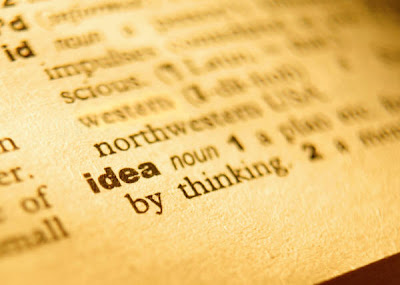
Watching the Charlie Rose segment last week about Apple's new iPad and then watching the documentary Empire of the Word, which is airing again on TVO this spring, got me thinking about that hotly debated subject, the future of reading, and about books in general.
I don’t belong to the sect that is moaning about the end of the written word or the end of the book, because frankly I don’t think writing and reading are doomed; if anything, this crazy 21st century thus far is showing us a world culture that is more addicted to the word than ever before. The rise of texting (yes, I know they're not using grammar), the proliferation of platforms and accessibility to content is increasing, not diminishing. The "word" is not going away any time soon. We will always need to communicate, and we will always need good communicators.
What is changing is how content is delivered. And that's not necessarily a bad thing. We don't write on stone tablets anymore (thank goodness for that because it's bad enough having carpal tunnel let alone back problems) and we don't fill little wooden boxes with molten lead, either. Our methods of producing and disseminating content have evolved. Not a surprise, surely. Everything has changed: locomotion, housing, work, manners and mores. Welcome to the human race. (And there's something about the race to achieve, change or improve that defines us as a species, isn't there?)
Yet, despite the progression from papyrus to digital publishing, what remains and is ever constant is the Word. It's just the format that is changing. Of course, the medium will affect the message (see that texting reference), but in the end it is the continuing flow of communication and information that keeps the world going 'round. (Indeed, don't physicists tell us that perhaps our universe is more a great thought than a machine? All life is encoded information — DNA, chemicals, atoms.)
If I have any concern, it is mainly this: I hope that the great works of literature and even the obscure but extraordinarily wonderful works of literature get distribution on these new platforms. How wonderful would that be! Can I read any text I want, say from the great library in Alexandria? Or the work of an unknown but brilliant poet whose manuscripts were only recently discovered? Can I read Plato? Sappho? Montale? Kundera? Cervantes and Bellow? And Whitman? Taking my iPad to the woods and reading "these leaves in the open air every season of every year of your life" suddenly takes on an entirely new and wondrous meaning. Whitman truly can go with me anywhere now, and not just the dog-earred yellowing pocketbook that gets stuffed in bags and coat pockets and will one day fall apart entirely.
The ancient Latin words "vade mecum" have a new context entirely.
So that is what would excite me: to know that I will not be limited to reading the latest mindless celebrity gossip or entertainment drivel, but that I will still be able to access the Word as given to us down through the centuries of human thought. Then that really will be a giant leap for mankind.
I like the idea of iPad. I think this will change things enormously. It is not just a toy. If it gets more people reading and accessing the papers and the newsfeeds so that they stay informed, and if it keeps children enthused about books and reading, I say great. There will always be a place for the books you hold in your hand, but if we can stop the destruction of forests to produce towers of paper books, then I say, let's …
The point is not what you are holding open in your hand to read from, what matters is that your mind is open to receive what you are reading.
More about that wonderful documentary, Empire of the Word, in another post.



This is an excellent blog post. I agree wholeheartedly, the word, and all that it entails, will be around forever. Any kind of media which can bring great writing to a new audience, can only be a good thing.
ReplyDeletePrestonPoet.
Thank you so much for the comment! I tend to see blogging as a modern, electronic version of sending messages in bottles over the vast ocean of the Internet. So glad to know someone is reading out there. Thanks again.
ReplyDelete